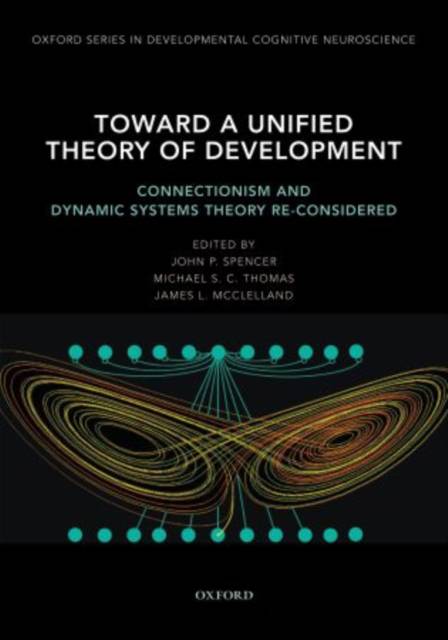
- Retrait gratuit dans votre magasin Club
- 7.000.000 titres dans notre catalogue
- Payer en toute sécurité
- Toujours un magasin près de chez vous
- Retrait gratuit dans votre magasin Club
- 7.000.0000 titres dans notre catalogue
- Payer en toute sécurité
- Toujours un magasin près de chez vous
Toward a Unified Theory of Development
Connectionism and Dynamic Systems Theory Re-Considered
John (Assistant Professor of Psychology, Assistant Professor of
164,45 €
+ 328 points
Description
From William James to Sigmund Freud to Jean Piaget to B.F. Skinner, scholars (and parents!) have wondered how children move from the blooming, buzzing confusion of infancy, through the tumult of childhood and adolescence, into adulthood. Does development occur continuously over time or in a series of dramatic stages? Is development driven by learning or by biological maturational processes? What is the nature of experience, and how does it generate change? The study of development has always been organized around these big questions. And answers to these questions have a profound influence on daily life, forming a framework for how parents think about their own children, and influencing both national policy and educational curricula. This book defines and refines two major theoretical approaches within developmental science that address the central issues of development-connectionism and dynamical systems theory. Spencer, Thomas, and McClelland have brought together chapters that provide an introduction, overview, and critical evaluation of each approach, including three sets of case studies that illustrate how both approaches have been used to study topics ranging from early motor development to the acquisition of grammar. They also present a collection of commentaries by leading scholars, which offer a critical view from both an "outsiders" and an "insiders" perspective. The book is unique in the range of its treatment-it begins to delineate how developmental science can incorporate advances within neuroscience and computational modeling, and brings the new ideas of connectionism and dynamic systems theory into sharper focus, clarifying their usefulness and explanatory power.
Spécifications
Parties prenantes
- Auteur(s) :
- Editeur:
Contenu
- Nombre de pages :
- 416
- Langue:
- Anglais
- Collection :
Caractéristiques
- EAN:
- 9780195300598
- Date de parution :
- 17-06-09
- Format:
- Livre relié
- Format numérique:
- Genaaid
- Dimensions :
- 183 mm x 254 mm
- Poids :
- 1202 g

Les avis
Nous publions uniquement les avis qui respectent les conditions requises. Consultez nos conditions pour les avis.






